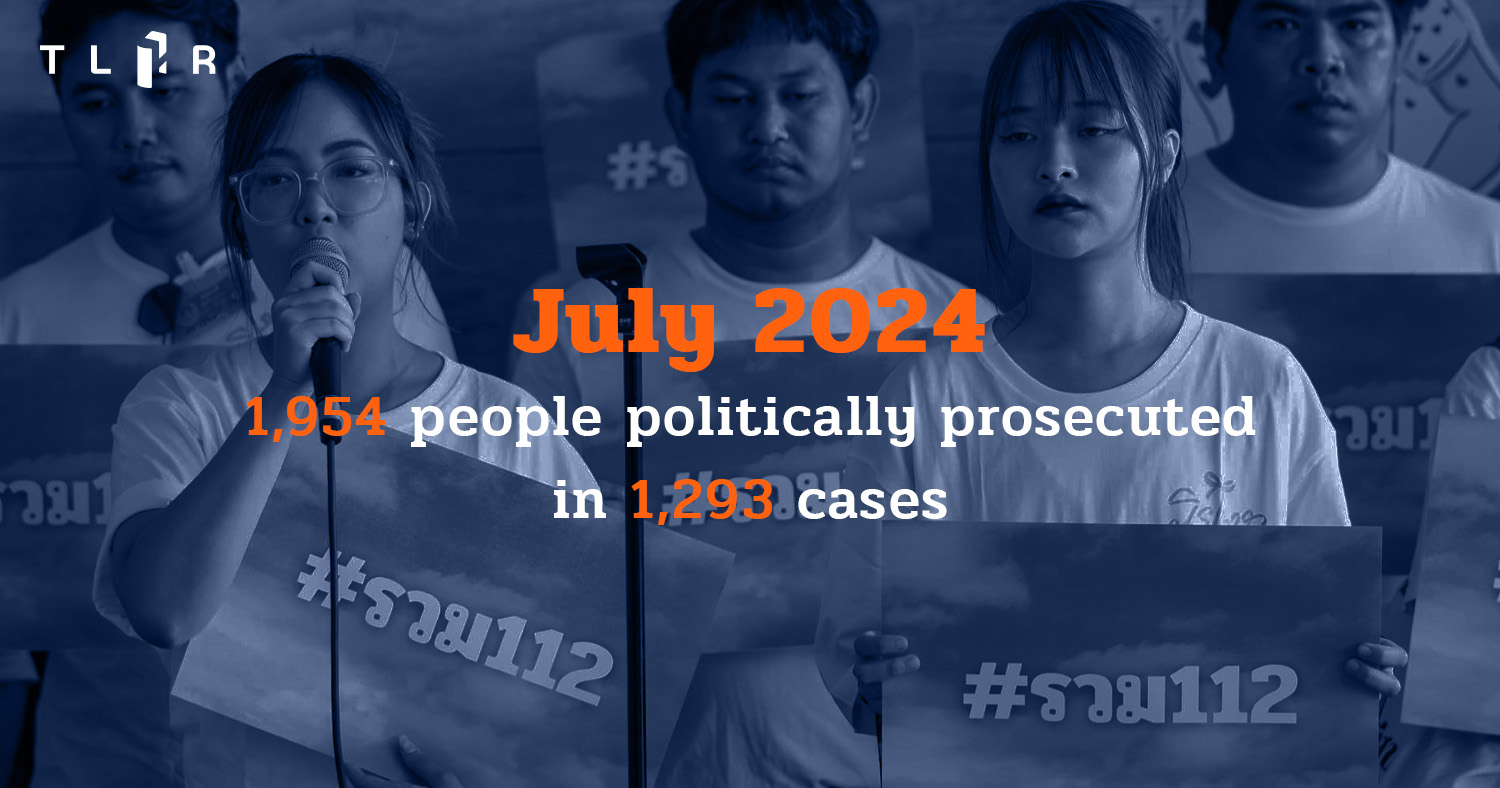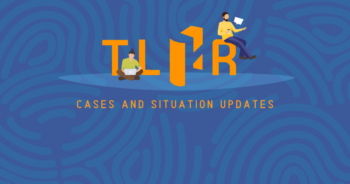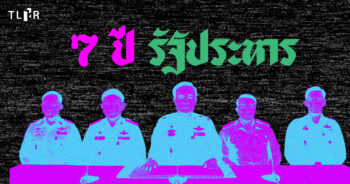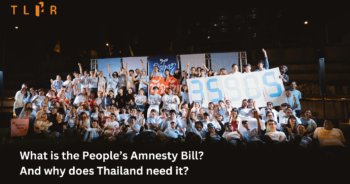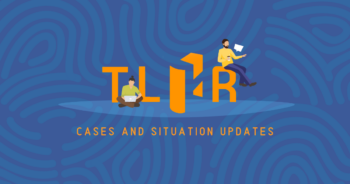In July, political prosecutions continued, with one new case each under Section 112 and the Public Assembly Act. At least three additional individuals have been detained in connection with Section 112 cases, including those who were denied bail during appeals and those whose cases have reached final judgments. Additionally, there have been rulings in significant cases, such as that of Arnon Nampa, though the full verdict has not been published. Regarding charges under the Public Assembly Act cases, the court has acquitted the defendants in two cases.
According to the Thai Lawyers for Human Rights (TLHR), since the Free Youth led public assemblies on 18 July 2020 until 31 July 2024, at least 1,954 individuals have been charged for participating in public assemblies or expressing their political opinions in 1,299 cases. Compared with June, there were two additional cases in July.
Altogether, there have been at least 4.005 cases, although some of them are charged for multiple offenses.
Prosecution statistics in key offenses;
1. “ Section 112” (lèse-majesté) of the Criminal Code, at least 272 individuals in 304 cases
2. Section 116 (sedition) of the Criminal Code, at least 152 individuals in 50 cases
3. Violations of the Emergency Decree, at least 1,466 individuals in 672 cases
4. Violations of the Public Assembly Act, at least 181 individuals in 99 cases
5. Violations of the Computer Crimes Act, at least 202 individuals in 225 cases
6.Contempt of court, at least 43 individuals in 25 cases, and insult of the court, at least 34 individuals in 10 cases
Out of 1,299 cases, 603 cases have reached their final verdicts. There remain more than 696 cases that are being pursued at different stages of the judicial procedure.
Prosecution trend in July 2024 and key events are as follows:
In Section 112 cases, seven rulings were made; three more people imprisoned
In July, a new Section 112 case was reported involving a minor who had previously been prosecuted and is now facing additional charges. This brings the total number of Section 112 cases since 2020 to at least 304, although there has been a slowdown in new cases over the past few months.
During this month, verdicts were delivered in at least seven cases: five in the Court of First Instance and two in the Court of Appeals.
A notable case involves Arnon Nampa in connection with two alleged Facebook posts about the King’s exercise of administrative power in early 2021. The Criminal Court sentenced him to four years in prison. In its verdict, the Court addressed Arnon’s arguments, ruling that the King’s amendment of the Constitution after a referendum did not breach democratic principles. Further, it held that changes to the law on crown property and royal service administration were approved by the National Legislative Assembly without the King’s direct involvement. Consequently, the Court found Arnon guilty of defaming the King and tarnishing his reputation.
This ruling is significant to the interpretation of constituent power and the justification of royal prerogative. However, the full version of the court decision is still pending. This was Arnon’s fourth Section 112 case that was decided by the Court of First Instance. His total prison sentence amounts to 14 years, two months, and 20 days, if every prison sentence from various cases are included. Every case is currently under appeal. Arnon still faces ten more Section 112 cases.
Additionally, in the case of “Manee-Khunphaen-Bright,” the trio was prosecuted for their involvement in the political activity “Stand Tall to Tell the King that We’re Bullied,” which demanded bail for Bung and Bai Por, and for performing Faiyen’s song “Lucky to Have Thai People” in 2022. They faced charges under Section 112, contempt of court, and defamation by publication. All three pleaded guilty. The Bangkok South Criminal Court sentenced each of them to three years and six months in prison without parole. For Manee and Khunphaen, the Court of Appeals denied their bail requests during the appeal process, resulting in their continued detention.
Furthermore, Shinawatra ‘Bright’ Chankrachang was convicted in a separate case for his speech on the transfer of crown property during the “Stand Stop Detention” activity at the Nonthaburi pier. The Nonthaburi Provincial Court sentenced him to one year and six months in prison without parole, bringing his total prison sentence to 15 years and 24 months. However, a further verification is required as some sentences were not ordered to run consecutively. Bright plans to appeal all of his convictions.
Regarding the Appeals Court verdicts, two cases from children’s courts were decided. First was the case against “Sainam,” who was accused of placing papers and spray-painting the color black over a portrait of King Rama X during the demonstrations on July 18, 2021. The Court of Appeals upheld the previous ruling to acquit him, citing insufficient evidence to prove that he had committed the alleged crime.
The second case was against “Bell,” a minor from Phatthalung Province. He was charged for allegedly posting selfies at various locations in the province with political captions on the “Free Phatthalung” and “Prachathippatai Dam Kwan” Facebook pages. The Court of Appeals overruled the initial verdict, finding him guilty on one count and not guilty on another. Previously, the Court of First Instance had convicted him on both counts. The Court of Appeals noted that the prosecution could only establish Bell’s connection to one of the Facebook pages. He was sentenced to one year and six months in prison, with a three-year suspension as well as additional probationary conditions.
Last month, there was a case against “Meechai,” a 52-year-old cook from Chanthaburi Province. He was charged under Section 112 in Samut Prakan Province for allegedly questioning the monarchy’s use of taxpayers’ money. The Court addressed his request to appeal the conviction to the Supreme Court. However, as no Supreme Court justices approved his appeal, the case has reached a final verdict and Meechai will be imprisoned, pursuant to the Appeals Court Region 1’s decision, which was a prison sentence of two years and eight months without suspension.
Meechai’s imprisonment has significantly impacted his family, as he was the primary breadwinner supporting his daughter, who is in high-school, and his 83-year-old mother.
As of early August, at least 27 individuals are being detained in Section 112 cases. This includes 16 whose cases are still under review and 10 whose cases have reached final verdicts. The increasing number of incarcerated individuals is concerning, as more verdicts from the Court of Appeals and the Supreme Court are expected.
Two cases related to the Public Assembly Act were dismissed, although a new subpoena was issued. Almost 400 cases under the Emergency Decree remain ongoing.
In July, a new case related to political assemblies was reported. Patsaravalee “Mind” Tanakitvibulpon received a summons from Yannawa Police Station for failing to notify the authorities of a public assembly as required by the Public Assembly Act. She has not yet appeared at the police station, and the specific reasons for the charges are still unclear.
Last month, the Court of First Instance issued acquittal verdicts in at least two cases under the Public Assembly Act. One case involved 12 activists accused of participating in the “Sai Ew Rampaging the APEC” event, where they protested against the One-China policy in 2022 by holding banners. The Pathumwan District Court ruled that this procession did not constitute a public assembly under the law, as it did not involve inviting the general public to participate. The Court also acquitted the defendants of the charge for resisting an official’s order, as they had refused to provide their fingerprints, arguing that the authorities could obtain their criminal records through other methods. However, the Court fined each defendant 500 baht for violating the Road Traffic Act.
In another case, Somyot Prueksakasemsuk and Thanaporn Wichan were charged for participating in a May Day demonstration in 2023. The Dusit District Court acquitted them of charges under the Public Assembly Act, ruling that the May Day activity is a traditional event and does not fall under the enforcement of the Public Assembly Act as per Section 3(2). Consequently, they were found not guilty of failing to notify authorities of the assembly. However, they were convicted and fined for violating the Act on Maintenance of Cleanliness and the Use of Amplifying Devices.
This situation highlights the excessive use of the Public Assembly Act by the police to criminalize those organizing public assemblies. The law is being applied in a way that goes beyond its intended purpose, creating an imbalance between the right to freedom of assembly and the need to facilitate public movement. Rather than using the law to balance these interests, it is being used to target individuals for failing to notify authorities of events, even when the police are aware of the activities and have managed them.
Additionally, it is noteworthy that in the previous case, the Court ruled that refusing to provide fingerprints was not a breach of an official’s order, as criminal records could be gathered through other means. If this ruling sets a precedent, it suggests that fingerprinting is no longer necessary for checking criminal records, as this information can be obtained using ID numbers.
Last month, some verdicts were delivered in protest-related cases concerning violations of the Emergency Decree. This included the case against three minors who participated in the Rainbow Car Mob, organized by the Feminist Liberation Group (FLG) on 1 August 2021. The Court of Appeals upheld the lower court’s verdict, finding them guilty under the Emergency Decree and issuing a fine of 4,000 baht each. In contrast, a similar case involving three adults who participated in the same event was dismissed, and the case has concluded.
This situation reflects the inconsistent and incoherent nature of the court’s decisions regarding cases related to the Emergency Decree.
Additionally, verdicts were issued in two other cases related to protests in 2021, where the defendants pleaded guilty. These included a case against one individual arrested during the curfew following the Car Mob x Car Park protest on 15 August 2021, and a case against five individuals for participating in a public assembly at Samyan Mitrtown on 16 January 2021. In both cases, the courts imposed fines on the defendants.
As of now, there are at least 382 Emergency Decree cases stemming from public assemblies that were held between 2020 and 2022 still pending in courts. This has placed a significant burden on many activists and individuals facing ongoing legal challenges.
